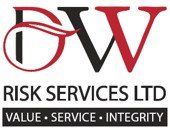BUSINESS FOCUSED
We work with your business to create the best solution for you
KNOWLEDGE & EXPERIENCE
We have been working within the insurance industry for over 25 years.
Liability
- Employers Liability Insurance
It is a statutory requirement for employers to have Employers Liability Insurance with a minimum indemnity limit of £5,000,000 (although most insurers now provide £10,000,000 as standard). This covers the employer’s legal liability for costs and expenses incurred in respect of any employee who has sustained an injury or illness arising in the course of their employment during the period of insurance.
Employers can be fined up to £2,500 per day for every day without this insurance, and up to £1,000 for not displaying the certificate of insurance either in hard copy or electronically.
- Public Liability Insurance
Public Liability insures the business owner against his potential legal liability in respect of injuries caused to members of the public or damage to third party property.
Although, apart from certain specific exceptions, this class of insurance is not compulsory by law many larger companies require contractors to carry minimum levels of Public Liability cover before they will allow them to work for them.
Cover generally starts at £2,000,000 much higher limits may be necessary depending on the type of business being undertaken and taking into account the maximum potential claim.
- Products Liability
Companies that manufacture, process or sell any sort of product will have a need for Products Liability insurance which cover’s the legal liability of the business if those products cause injury to a third party or damage to third party property.
Cover generally starts at a limit of £2,000,000 but much higher limits may be necessary depending upon the nature of the product and the potential for causing injury or damage.
- Professional Indemnity Insurance
Professional indemnity insurance can help protect against claims from a client you have previously done work for. Professional indemnity is handy for companies that regularly provide advice to clients, handle data for others, are responsible for clients’ intellectual property, and more.
Having the quality of the work you provide or have provided in the past called into question can potentially spread negative perceptions and put you out of business.
If you feel like you’ve done nothing wrong and have provided a consistent, quality, professional service then professional indemnity insurance can protect you from the typically high cost of defending yourself and your business in a court of law.
Professional Indemnity policies cover you against claims of professional negligence, error or omission made against you during the period of insurance. A claim could be made against you during the period of insurance but in respect of advice you gave before taking out the policy. You should ensure that the policy includes “Retroactive cover” to cover you for the advice you gave before taking out the policy.
Equally, if you retire or cease trading you will need to keep a Professional Indemnity policy in force for a number of years afterwards in case a claim is subsequently made against you.
- Directors and Officers Insurance
Also known as D&O, Directors and Officers insurance covers the cost of compensation claims made against your company’s directors and managers/officers for alleged wrongful acts. Wrongful acts can range to anything from errors and neglect to matters as serious as wrongful trading.
D&O is there to cover the cost of compensation claims made against key company figures by shareholders, employees, third parties and regulators, and others. D&O covers claims made by regulator investigators, creditors, and claims in relation to insolvency and EU legislation breaches.
D&O is payable to the company’s directors, officers, or the company itself to reimburse losses, an advance for defence costs, and more as a result of legal action being brought for alleged wrongful acts.
- 21.2.1 Insurance
Where work on a new construction project, or an extension to an existing building involves excavation, piling, demolition or underpinning there may be a significant risk of the contractor or sub-contractor causing damage to surrounding property by subsidence, vibration, weakening of support or lowering of ground water level.
Due to the nature of the geology of the surrounding landscape and the proximity of neighbouring property such damage can occur even in the absence of negligence on the part of the contractor or sub-contractor. However the Employer (Developer) may still be liable, as they will be seen as the party that brought the Contractor to site (Gold v Patman & Fotheringham 1958), hence the need for this more specific insurance cover.
In the absence of such negligence a Public Liability policy would not operate and the employer, contractor or sub-contractor could all potentially be held liable for the damage. In response to this risk, the JCT (Joint Contracts Tribunal) standard form of building contract contains a clause (Clause 21.2.1) which can be incorporated into the building contract to cover this risk of non-negligent damage to surrounding property.
The architect, consulting engineer or surveyor managing the project will normally stipulate the requirement for this clause and the policy will be issued in the joint names of the employer, contractor and/or sub-contractor in order to protect all parties concerned.
Non-negligent damage to surrounding property caused by collapse, subsidence or heave, vibration, weakening or removal of support, lowering of ground water level.
